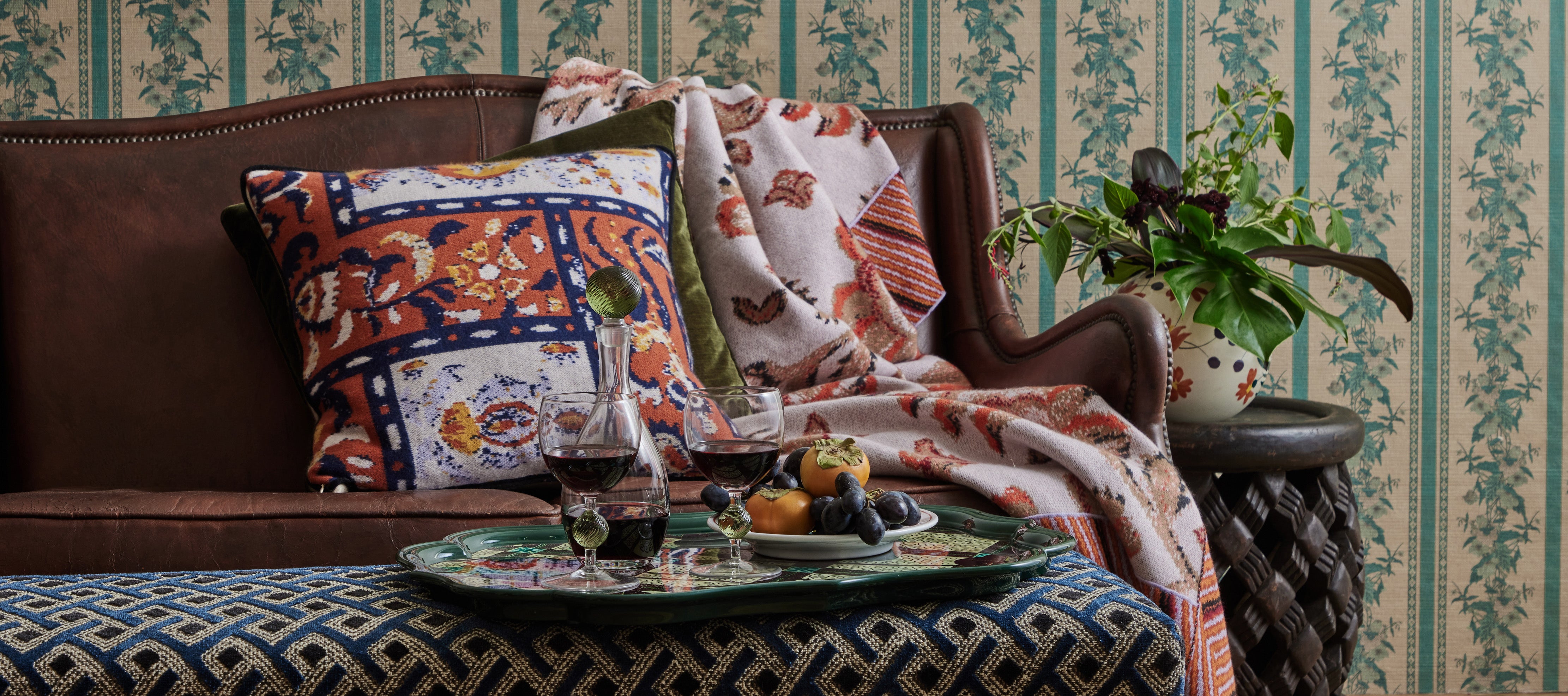Faux food, disco balls, mushrooms and ring lights—if any of these appear in your home, you may be well on your way to winning Gen Z apartment bingo. Stay in the know with our weekly roundup of headlines, launches, events, recommended reading and more.
Business News
During the pandemic, a combination of low interest rates and a buying frenzy placed the mortgage industry in a record boom, prompting lenders to staff up. Today, rising interest rates and stalled homebuying activity have pushed the industry’s luck in the opposite direction, The Wall Street Journal reports. Mortgage companies are laying off workers, merging with other lenders, shutting down entirely—and in some cases, asking employees to return bonuses handed out when the industry was booming. With mortgage rates now at 7.49 percent—the highest since 2000—and mortgage application activity at its lowest level in nearly 30 years, lenders are bracing for a downturn that some believe won’t begin to reverse until 2025.
Pinterest’s monthly active user growth surged past pandemic highs to a record 482 million last quarter, driven in part by rising engagement from Gen Z—a key demographic for advertisers. As Reuters reports, the company shared that more than half its users now view the platform as a place to shop, thanks to new features such as a Shop tab and Product Pins that link directly to merchants’ sites. The news sent Pinterest’s shares up 17 percent this week, putting the company on track to increase by nearly $3 billion in market value if the gains hold.
Last week, the liquidation process began for two recently shuttered furniture brands. As Home News Now reports, asset disposition and advisory firm SB360 Capital Partners will liquidate finished goods, work-in-process inventory and raw materials for former case goods and upholstery manufacturer Klaussner Furniture Industries following the company’s August closure. Meanwhile, B. Riley Financial, a company that specializes in retail liquidations, has been hired to liquidate now-shuttered Z Gallerie’s 21 remaining stores.
Earlier this month, California Gov. Gavin Newsom banned the sale of mattresses and upholstered furniture that contain fiberglass. Studies have shown that products containing fiberglass—commonly used as a flame retardant—can pose risks to consumers if the mattress or upholstered item is damaged, releasing fragments and leading to irritation of the skin, eyes and lungs. Safer replacements for the material include wool, rayon and polylactic acid batting. Introduced by Assembly Member Laura Friedman and sponsored by the Environmental Working Group, the law will take effect January 1, 2027.
Seattle-based digital freight broker Convoy is shutting down and laying off nearly all of its 500-person workforce amid what the company’s leadership is calling an “unprecedented freight market collapse,” CNBC reports. In a memo sent out to employees last week, CEO Dan Lewis cited a “massive freight recession” for the decision, pointing to the tightening economic climate of the past 18 months as the cause of the company’s sharp downturn. Despite experiencing a period of rapid growth during the peak of the pandemic, Convoy has spent the past year attempting to adjust to new market conditions by conducting multiple rounds of layoffs, at one point cutting an entire Atlanta office. Convoy isn’t the only company to face challenges in the freight sector right now: The news of its closure came just one week after supply chain software startup Flexport announced it would lay off about 20 percent of its workforce, and only a few months after the demise of trucking giant Yellow.
Though a home office was a must-have during the pandemic years, it’s no longer a top priority for prospective homebuyers—many of whom are reentering the office or adopting hybrid schedules, The Wall Street Journal reports. According to a new study by Zillow, office-related keywords were mentioned far less during the first six months of this year compared to the same period last year: “cloffice” was down by 54 percent, “home office/Zoom room” by 41.4 percent. Even the general term “office” declined slightly from last year, with residential real estate experts noting that they’ve shifted to highlighting popular pre-pandemic features such as quality kitchens and bathrooms.
Launches & Collaborations

Los Angeles–based design studio and boutique Nickey Kehoe teamed up with Cabana to debut an accessories collection. Together, the two brands have launched a three-piece assortment—including a cashmere pillow, a cashmere throw and a lacquer tray—inspired by turn-of-the-century hand-blocked prints uncovered during a recent trip the studio’s founders, Todd Nickey and Amy Kehoe, took to the South of France.
Henrybuilt’s design journal Untapped debuted its inaugural print edition, available online and in select bookstores. The new publication, which will be released annually, features the work of key design figures such as the late architects Alison and Peter Smithson and artist Roy McMakin, along with a selection of existing Untapped stories supplemented with footnotes and foldout photographs.
Recommended Reading: Halloween edition
Some residential communities center around a beloved garden club or a gleaming golf course—though in the rural western New York town of Lily Dale, residents are already looking past this life and toward the next. For The New York Times, Anna Kodé takes readers inside the roughly 250-person village populated entirely by Spiritualists, who believe that human souls continue living after physical death. Founded in 1879, the historic hamlet boasts colorful Victorian homes, garden gnomes, cottagecore decor and a variety of opportunities to engage with the spirit world, including through a local “mediums directory” of more than 30 residents certified to give psychic readings.
If real estate agents were required to disclose a property’s ghosts to prospective homebuyers, the horror movie genre would suffer. But as Erika Mailman writes for The Wall Street Journal, some states actually do have regulations around communicating a supposed haunting to buyers before a sale—and the information matters to would-be homeowners, too, with a recent survey suggesting that only 24 percent of potential buyers would purchase a haunted house.
Cue the Applause
Baccarat announced the recipients of its first-ever scholarship program in partnership with the New York School of Interior Design. The winners were fourth year NYSID student Bridget Lee in first place, receiving $10,000; MFA student Peter Ibarra in second place, receiving a $1,500 Baccarat gift card; and MFA student Jason Win in third place, receiving a $500 Baccarat gift card.





























